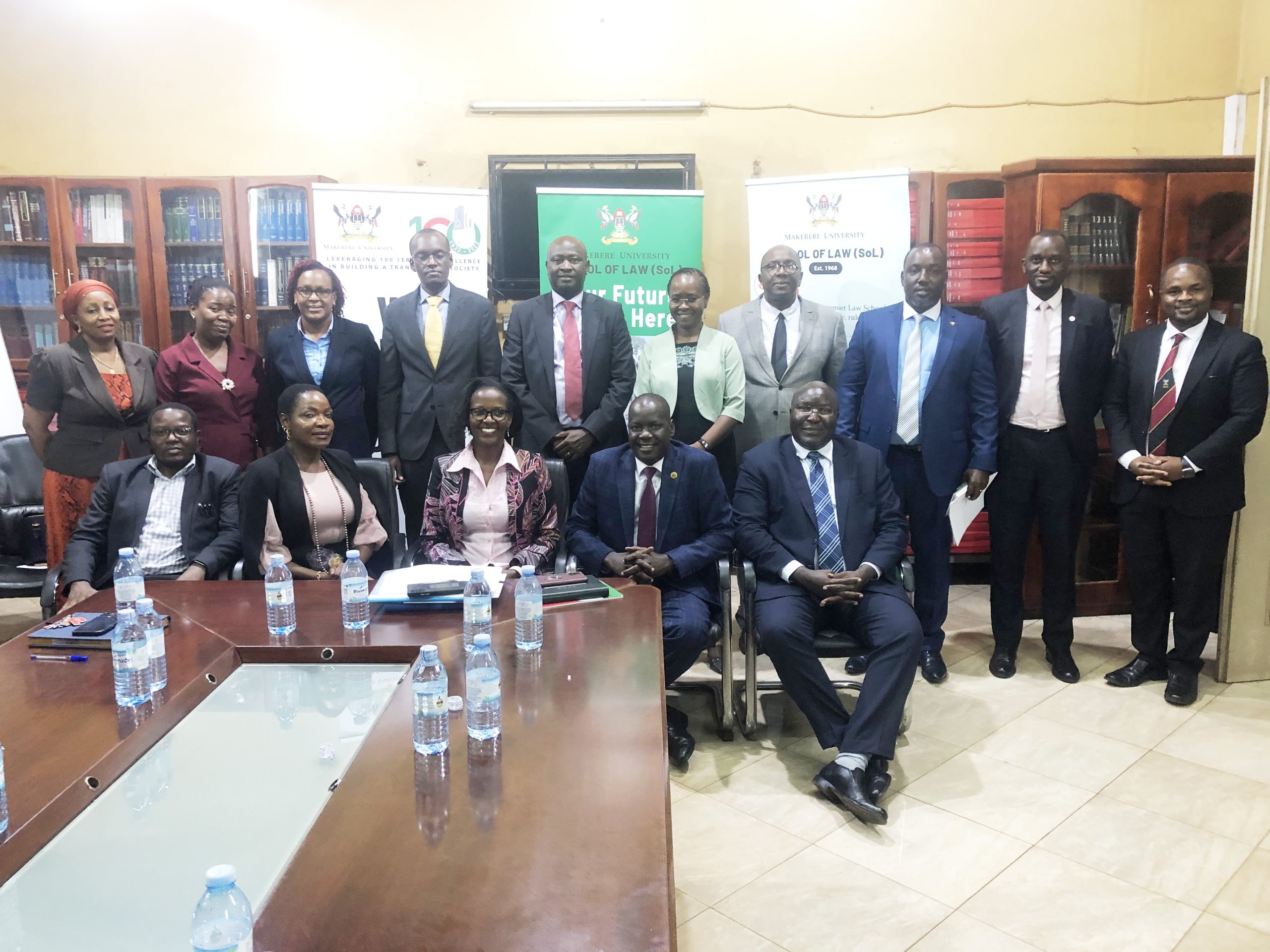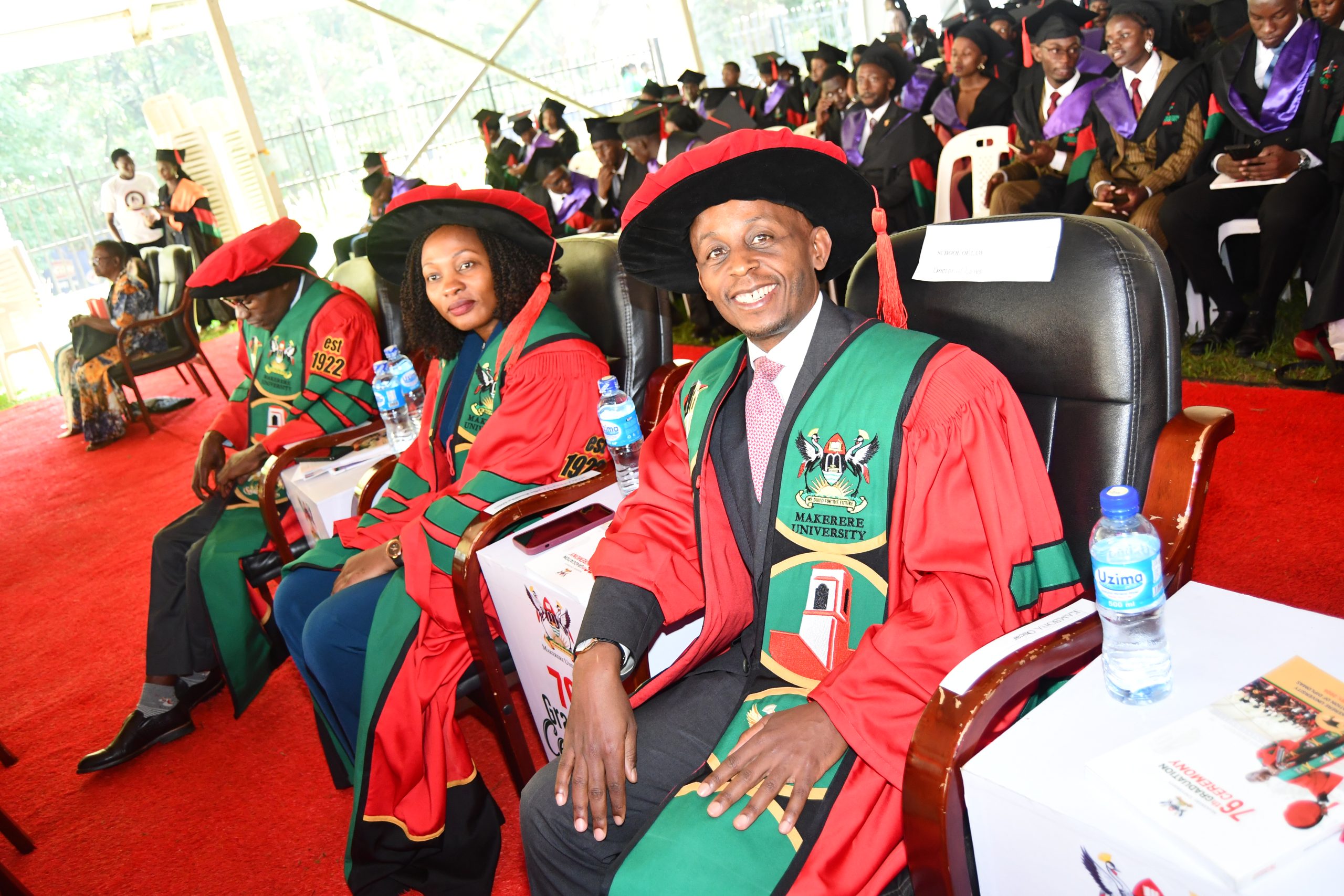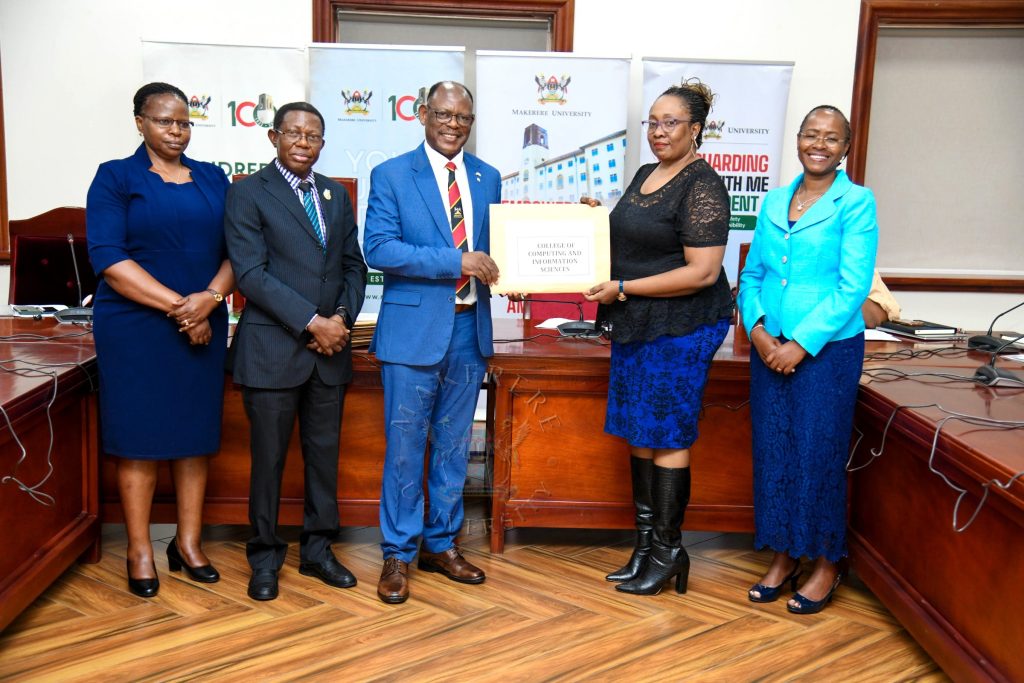Mak Council Visits the School of Law
The Makerere University Council visited the School of Law (SoL), Makerere University on Monday, 27th February 2023. Council members held a meeting with the School leadership including the Principal, Deputy Principal and Chairs of Departments.
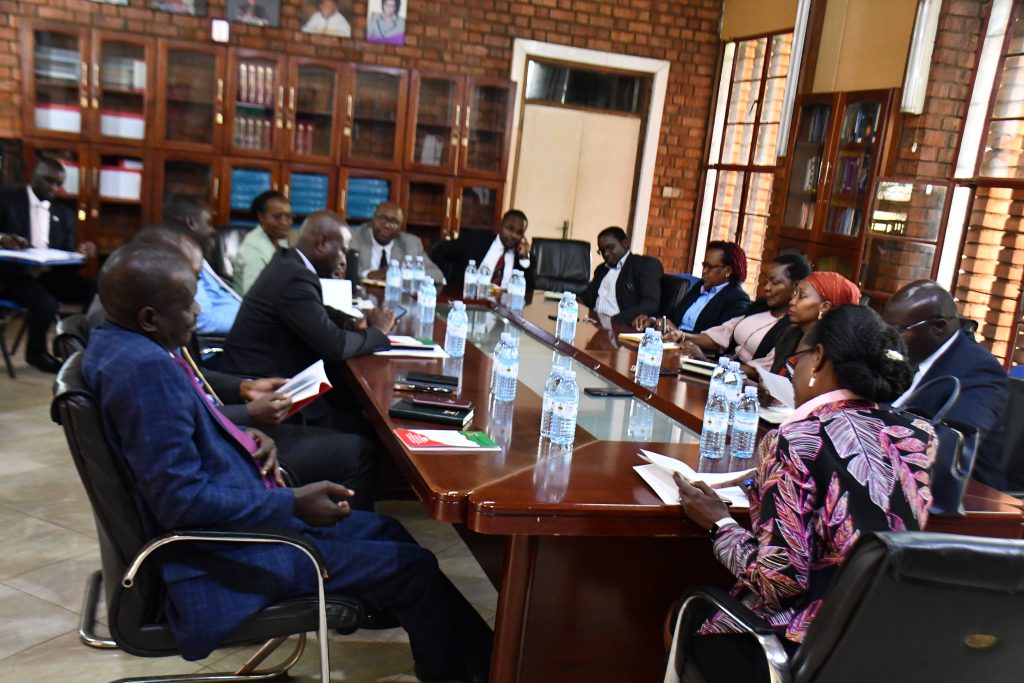
Mrs. Lorna Magara (Chairperson – Council) was accompanied by Hon. Dan Kidega (Vice Chairperson – Council), Mr. Edwin Karugire (Chairperson – Appointments Board), Mr. Edward Sengonzi Damulira (Council Member), Mr. Bruce Kabaasa (Chairperson – Finance, Planning, Administration & Investment Committee), Dr. Sarah Ssali (Chairperson – Quality Assurance, Gender & ICT Committee), and Mr. George Bamugemereire (Chairperson – Legal, Rules, Privileges & Estates Committee).
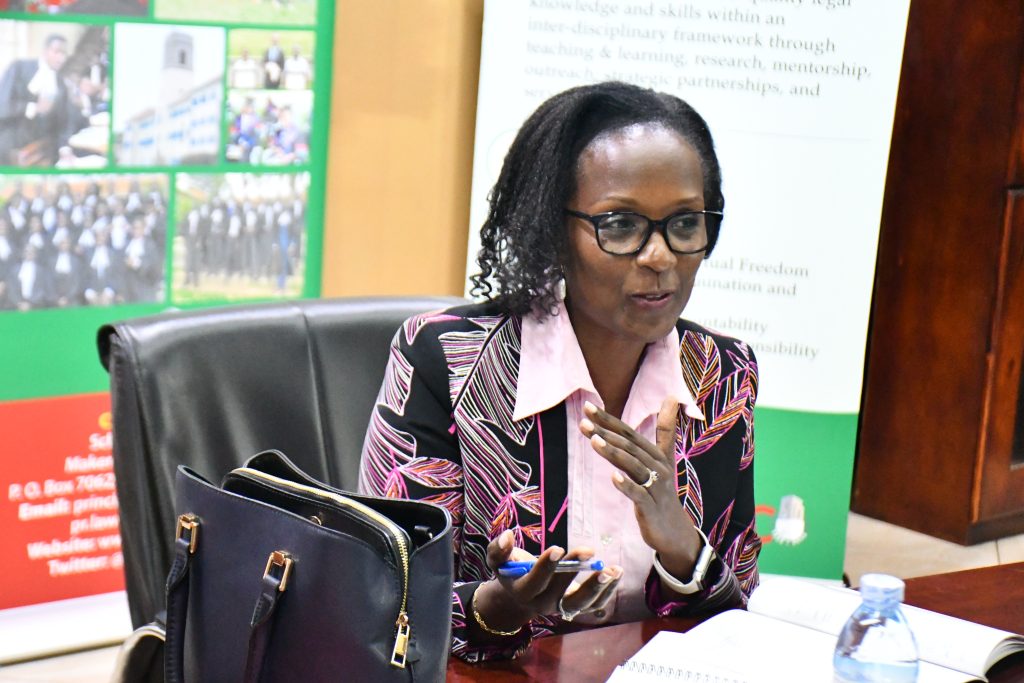
In her remarks, Mrs. Lorna Magara who was recently re-appointed to serve a second term as Chairperson – Council said, ‘it is a delight to be back to the School of Law. The purpose of this meeting is to introduce the new Council members to the College, get to know what the SoL is doing as well as engage staff on how best to work together through this term’.
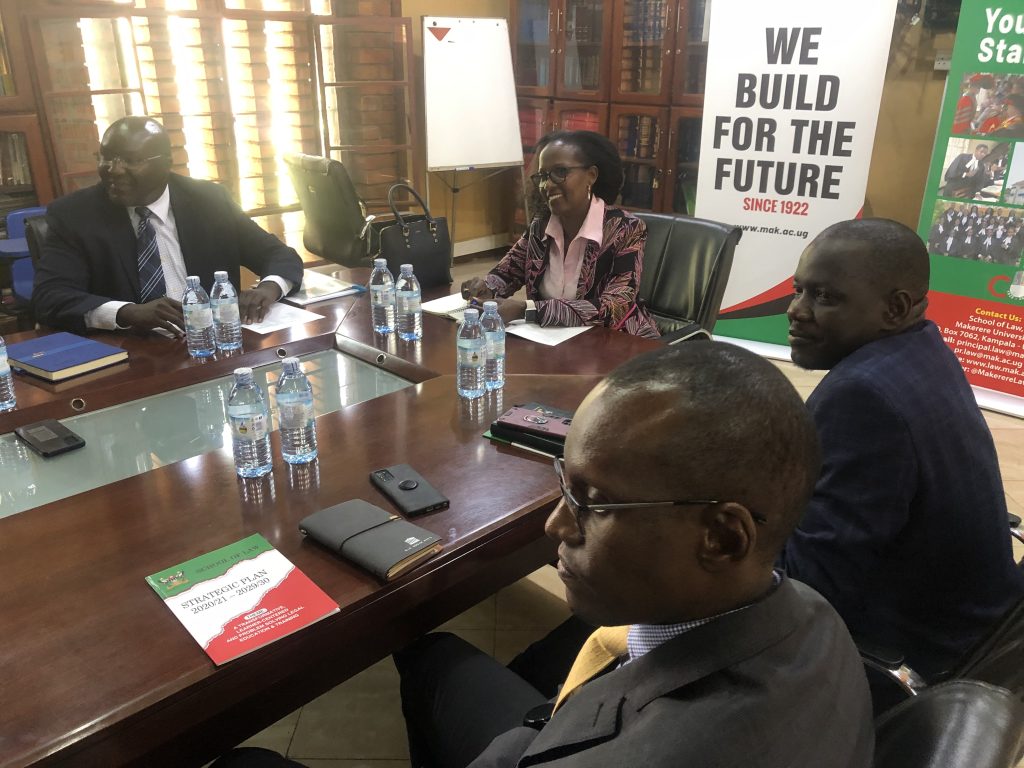
In his brief presentation, Associate Professor Ronald Naluwairo, the Ag. Principal SoL welcomed the Council members to the School and expressed optimism about the meeting. He said, ‘we don’t take this visit lightly, it is not every day that Council visits the colleges. The last time Chairperson and Vice Chairperson of Council were here, we got the new School of Law Building which we are slated to move into in March 2023’. He shared the vision, mission and strategic direction that the School is taking towards implementing its strategic plan and the University Strategic Plan. He added that the Strategic Plan of SoL is aligned to the National Development Plan III to support human resource development, community development and mindset change and administration of justice.
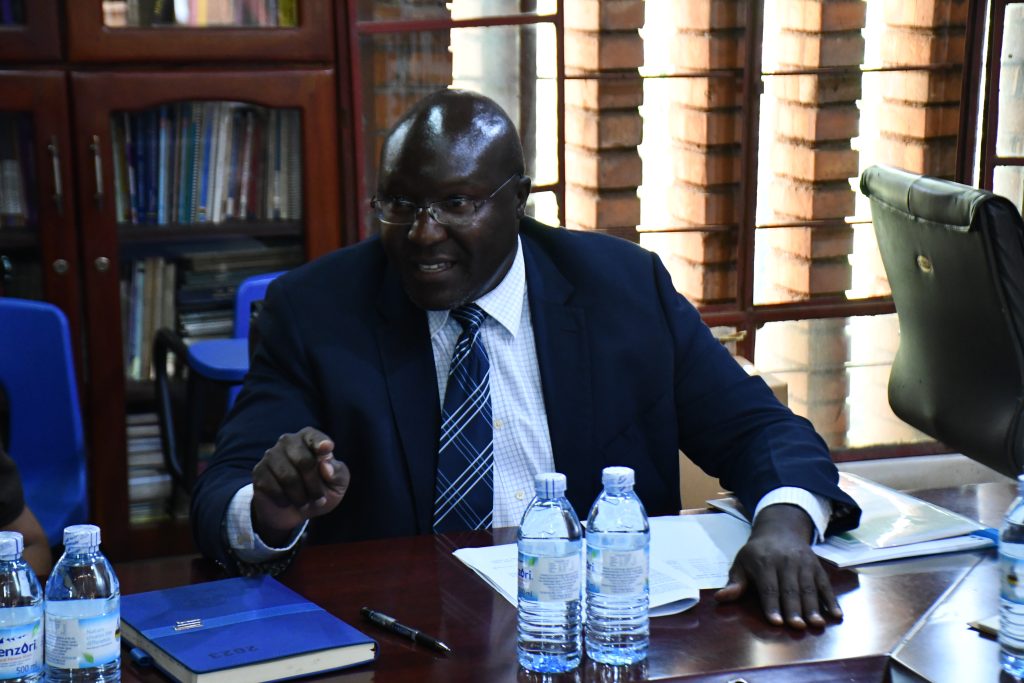
Professor Naluwairo explained that the SoL is constantly enriching its programmes through revisions responsive to client needs, the LL. B programme was recently revised and two new specialised LL.M programmes developed. The School is also moving to revamp its alumni association; diversify teaching methods to include clinical legal methods and online instruction which are more learner centred; as well integration of career guidance in its curricula. He also informed members that ‘In tandem with the strategic direction of Makerere University of becoming a research-led university, SoL is developing its new research agenda around 5 thematic areas.
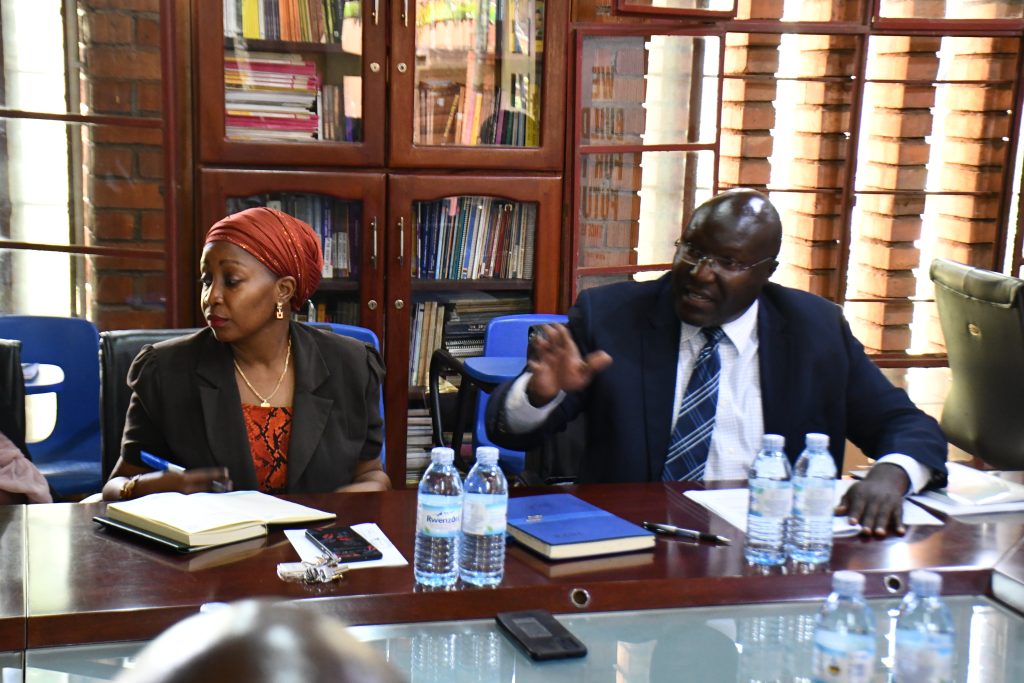
The SoL has also successfully taken Makerere University to the community and made the University relevant and felt by the ordinary people through its outreach initiatives including the Public Interest Law Clinic (PILAC), Refugee Law Project, Business Law Clinic, Disability Law & Rights Centre, the Human Rights and Peace Centre, as well as the Administration Law Short Course, the Principal added.
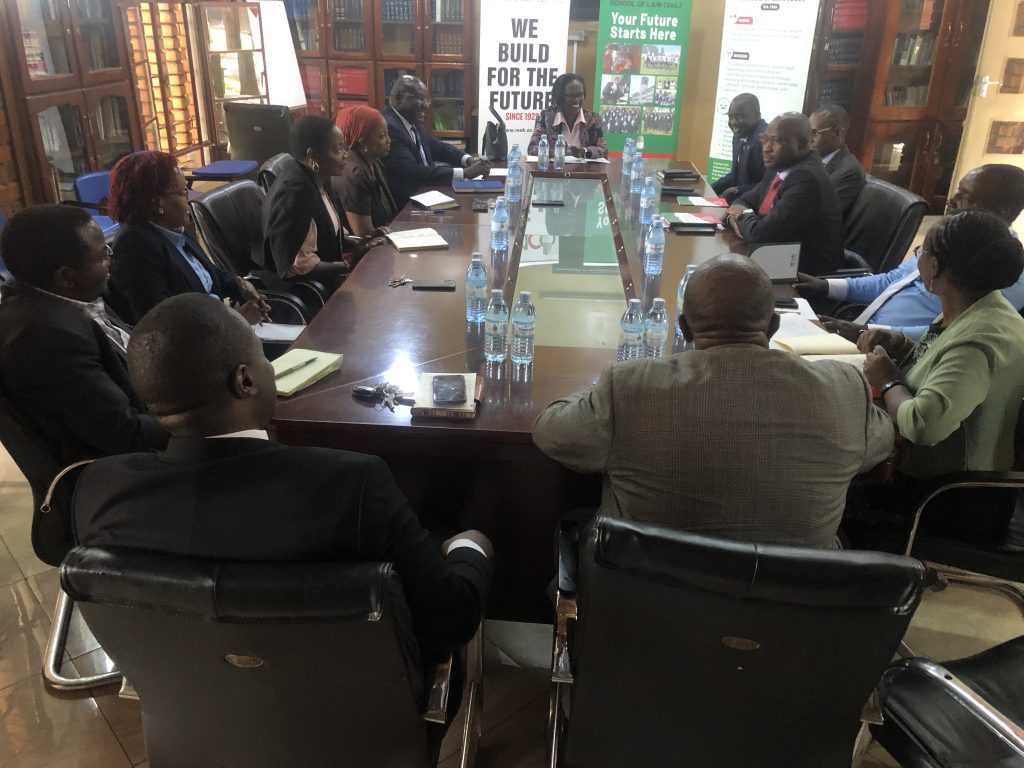
He concluded by highlighting the major challenges and threats that SoL faces. Key among these is the delay for National Council for Higher Education to formally gazette it as a College of Makerere University. He informed the Council members that this was attributed to two major factors i.e., the unacceptable student: lecturer ratio and the poor and inadequate physical infrastructure. Although the University has now addressed the latter for which we are very grateful, it is yet to address the issue of high student: lecturer ratio. The other challenges highlighted were: the under representation of the SoL in key university decision making organs (like in Senate where it is represented by only two people), furnishing of the new SoL building; delayed staff promotions and donor dependence for most of its outreach and advocacy initiatives.
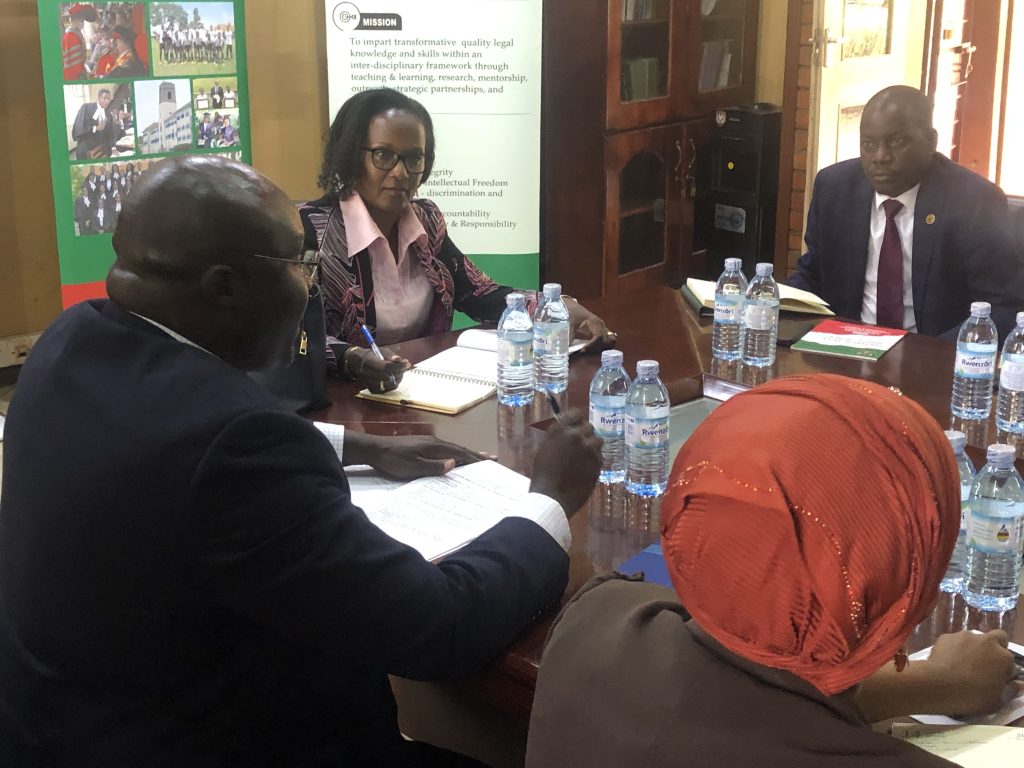
After the Principal’s presentation, the Council members thanked SoL for the good work it is doing towards realizing the University strategic objectives. They however challenged the School to realign its strategic plan along the Government direction of science, technology and innovation. In light of the many law schools in the country now, they also emphasized the need for the School to profile the kind of graduate products it should work towards producing, who should be distinguishable and marketable. The School was also encouraged to vigorously engage its alumni to support its operations.
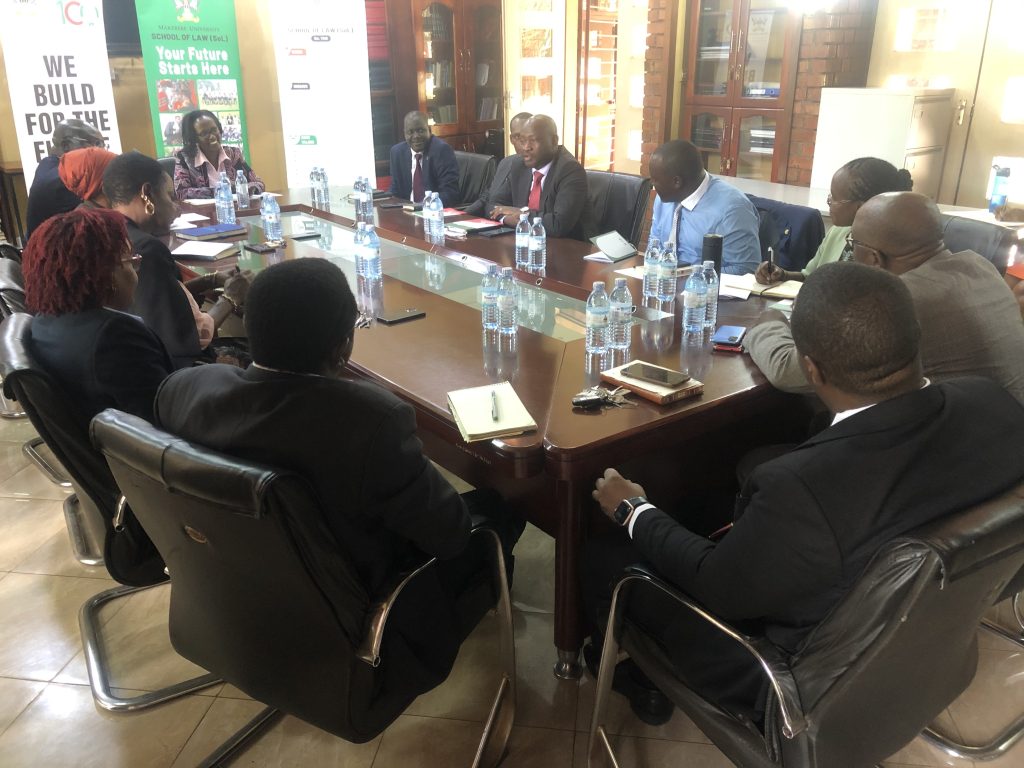
The meeting was characterized by open discussion and commitment for support of the SoL from the Council.
Closing the meeting, the Chairperson Council encouraged SoL leadership to continue engaging the University Secretary, Appointments Board and University Management for more in-depth discussion of the issues raised during the meeting.
Mrs. Magara advised that SoL should document the challenges and requirements, forward them to University Management who will then share them with Council for consideration.

